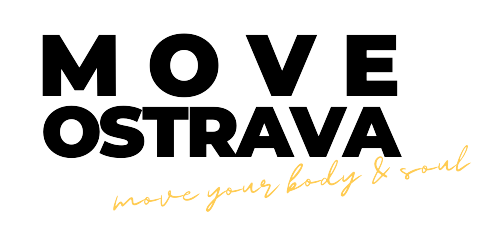Theory
Resonance as a concept comes from acoustics. It describes the phenomenon of two vibrating bodies mutually influencing each other. Like the strings and the body of a guitar that reinforce each other. Taken as a metaphor into the social context, resonance describes a certain mode of relationship between a human being and (part of) their world. We all have resonant relationships in our lives. It is the relationships that really matter to us, that define who we are. In that sense, being in resonance is an existential experience. It is a state of being in which we feel very present and addressed as an individual and at the same time connected to something/someone else.
What characterizes a resonant relationship?
A resonant relationship is one in which **both parts speak with their own voice** and mutually influence each other. In other words, resonance is about listening and answering. Then, a resonant relationship is one that affects us emotionally. Something speaks to us, touches us, concerns us. Like when a musician touches their instrument and starts playing. As a result there is a moment of answering. My body tension changes. My eyes light up. My state of mind changes. Furthermore, in a resonant relationship there is **mutual transformation**. Think about a carpenter and the wood she is working with. This also means that in a resonant relationship we have a strong sense of self-efficacy - we can see our own impact in the world. And finally, there is a moment of unavailability. This means that we can\'t force or control resonance. There is always some level of uncertainty involved.
Resonance and Alienation
The opposite of resonance is alienation. In an alienated relationship we face a world that seems cold and rigid, that does not speak to us and we feel indifferent towards it. Nothing matters. What am I doing here? According to resonance theory, experiences of resonance and experiences of alienation are the two fundamental modes of experiencing our world. Most of our actions are motivated either by a seeking for resonance or trying to avoid alienation.
Work, Conflict and Over-Resonance
Resonant relationships are special because we need to invest time and effort to keep them resonant. Moreover, resonance does not mean harmony. Conflict and resistance are indispensable parts of resonance. As a result, resonance can never be a commodity, we can never consume it. With that in mind it becomes clear that we cannot and should not have resonant relationships with the entire world around us. To the contrary, resonant relationships can be exhausting. We can even be "over-resonant", meaning that we cannot control or stop the flow of energy between us and the world. When we are over-resonant, we stop speaking with our own voice, we lose our individuality, cannot say "no" any more. This can lead to burnout - which is another way of saying that we cannot feel any resonance anymore.
Independent Cultural Centres as Resonance Heaven
We believe that independent culture centres are basically resonance heavens for many reasons. This makes working in a culture centre a very immersive, enriching, but potentially also captivating and exhausting experience.
Existential experience. Many cultural workers we have talked to describe a similar experience when they started working in their culture centre. They had this feeling of something inside them responding, waking up, a rush of energy when they began to realize the potential that lies ahead of them. Culture centres have this ability to touch us in an existential way. They speak to us and something inside us answers. This experience is often quite sublime and most cultural workers struggle to put it into words.
Resonance on many levels. In a culture centre we can experience resonance on pretty much every level. We can be in resonance with the big idea, the vision and purpose of our centre. We can also be in resonance with the work we do - either with our hands or our minds - repurposing the building, developing performances, designing light and sound, wrestling with excel sheets ... And then we can also be in resonance with the people in our centre. The combination of these experiences has the potential to make working in a culture centre a resonance rich experience.
Mutual transformation and self-efficacy. Since culture centres are normally unfinished, malleable places, there is a lot of potential to engage our creativity and transform the place according to our own ideas. The extreme case would be an empty industrial ruin that gets transformed into a living centre through imagination and the work of many hands. In a culture centre we can recognize ourselves in our work and grow our capacities in many different ways.
Facing and overcoming resistance. Cultural work is often characterized by overcoming hurdles or resolving conflicts. Working around ignorant public authorities, motivating an audience for an experimental performance, finding money to pay the bills, fixing a leaking roof, ... the list of challenges is long. Responsibility is often very direct and personal. Overcoming these hurdles can be exhausting, but they also provide stepping stones for personal growth and success stories.
Surprise. Culture centres are chaotic, volatile environments. We cannot fully control what is going to happen next. Like jazz musicians we have to develop improvisation skills. Having to improvise can be very stressful for a beginner, but for an experienced jazz musician it is the pinnacle of making musik.
The two sides of resonance
For all these reasons culture centres can be invigorating places to be in. They challenge and transform us, make us feel alive and in connection with something bigger worth struggling for. However, culture centres are also places where we can easily become over-resonant. Resonance on many levels can mean that it becomes increasingly hard to draw a line between us and our centres. Mutual transformation is only a positive experience as long as we can keep our own voice. And facing resistance and surprise can turn into an experience of drowning. This is the double sidedness of a strong resonant relationship with a culture centre.
To pick up the question from the "2 Sides of Working in Culture" chapter, yes we think that in order to be in resonance with our centres and experience the wonderful things that contains, we have to expose ourselves to the risks of a resonant relationship too. A certain amount of risk and uncertainty is necessary to keep resonance alive. But this is not an excuse to forget all control. If you go climbing, you don't leave the rope behind. You can learn to navigate resonance, like jazz musicians learn to improvise.
Working questions
- Where and when are you in resonance?
- Where and when are you over-resonant?
- Can I measure my resonance level? Or should I not do that?
- Describe situations when you have experienced the following resonance measures (or choose one of them): existential experience, resonance on many levels, mutual transformation and self-efficacy, facing and overcoming resistance, surprise, two sides of resonance.
- Try to put in words (describe) the resonance between you and your culture centre.
- So can there be a path of resonance in cultural work that successfully avoids the depths of burn-out and bore out?
It is important to note that resonance should not be taken as an ideal state of working in culture. You can't say "more resonance is always better". Rather, resonance theory helps us to understand our existing reality better. It also provides good food for thought about how we would like things to be, without suggesting easy solutions.





